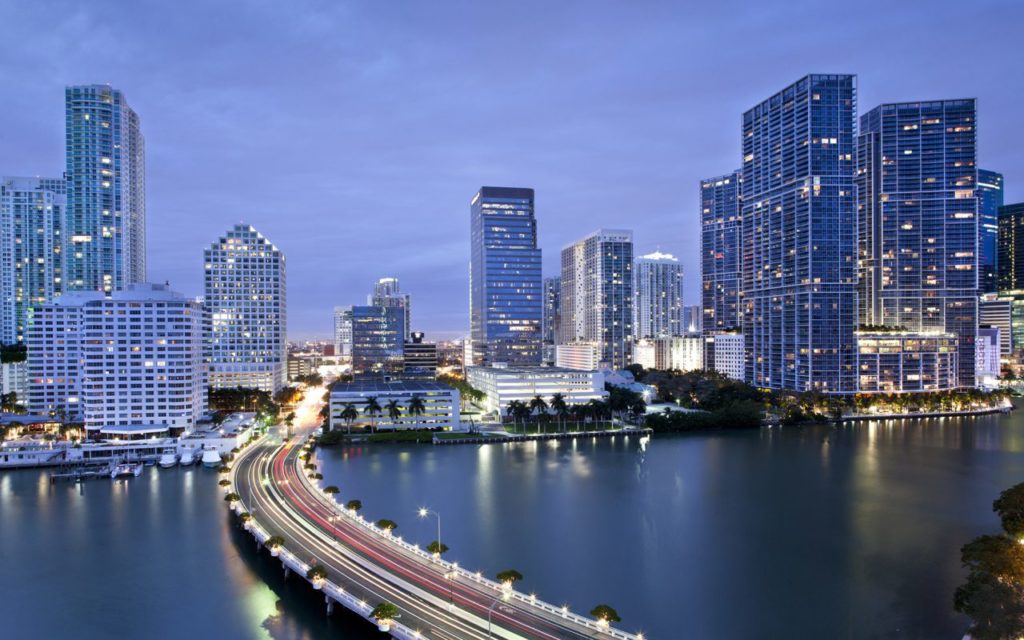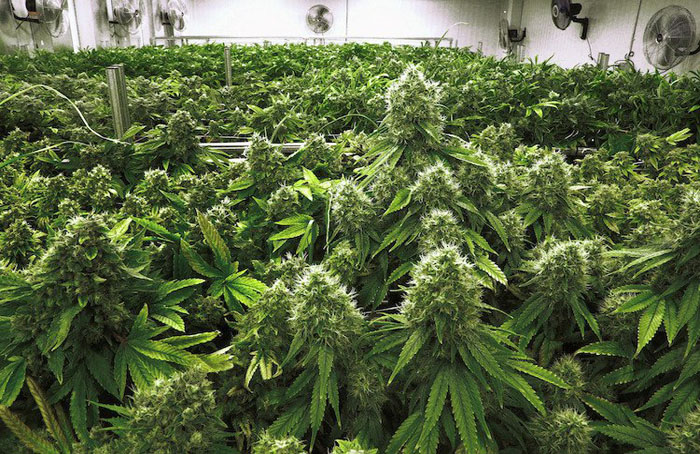The cannabis boom is under way in Florida, and government is struggling to keep up.
Thousands of new patients have sought access to medical marijuana this summer following the passage of a new lawexpanding the list of maladies that qualify for treatment. Since June 7, the number of patients certified over the entire first three years of Florida’s fledgling cannabis program has nearly doubled from 16,760 to more than 31,000.
But patients are finding it’s one thing to receive a doctor’s certification, and another to receive the state-issued identification card needed to legally place an order. Doctors seeking state-required training through a new course that has yet to be offered are equally frustrated, leading to a growing feeling that the Florida Office of Medical Marijuana Use and its 12 employees — nine of whom are part-time — are simply overwhelmed.
“I’m not sure the state was prepared,” said Pete Sessa, chief operating officer of the advocacy-minded Florida Cannabis Coalition.
Right now, the average patient — who might suffer from cancer, HIV, Parkinson’s or other serious illnesses — waits 30 days after applying to receive a medical marijuana card. And that’s if everything goes according to plan.
Patients on Facebook message groups and frustrated doctors tell stories about unexplained delays, applications rejected on technicalities related to photos, and paperwork lost in the mail. Cory Young, a cancer survivor and former paramedic from the Florida Keys who suffers from neuropathy and post-traumatic stress disorder, said he waited on hold for hours over five frustrating weeks trying to find out what happened to his application and $75 money order.
At one point, he was told his application was incomplete because his physician began the process online and Young finished it by sending documents and payment in the mail. Last week, though, Young said he learned from an email that his card was being printed.
“Their system is absolutely broken,” he said.
The pace may be frustrating, but patients are slowly receiving their cards. As of Aug. 6, the state had awarded 12,226, according to a spokeswoman. And, even if patients have to wait a month, that’s still an improvement on the 90-day waiting period for new patients required by law as recently as June.
Still, physicians and patients say it’s unnecessary.
“I think it’s crazy that patients still are waiting four weeks to get their card. That’s ridiculous. And most of the time, they’re getting their card [applications] returned,” said Michelle Weiner, a South Florida Interventional Pain Management Physician qualified to issue marijuana recommendations. “I have cancer patients who are still suffering.”
Modern Health Concepts owns South Florida’s only legal medical marijuana grow operation. The company recently allowed a Miami Herald photographer and reporter to the tour the facility.
On an average day, the Department of Health’s marijuana office handles between 1,000 and 1,300 phone calls. Some 3,000 ID card applications are pending at any one time. The office is also responsible for keeping tabs on the state’s 12 licensed growers and monitoring the reams of information that doctors are required to submit about their patients.
“Right now, we’re in limbo,” said Dionne Hinds, who wants to expand her Port St. Lucie family practice to include medical marijuana. “We’re stuck indefinitely because they’re not able to tell us when the new certifications will be available.
Hinds said one of her patients who suffers from fibromyalgia found it so difficult to find a qualified physician able to navigate the state’s system that she drove three hours to a marijuana clinic in Venice Beach. Patrick DeLuca, whose Compassionate Cannabis Clinic ended up seeing the patient, says he has seen a number of patients with frustrating stories.
“It’s a nascent program. So it’s our hope over the next couple of months that as things fall into place … this program will be a whole lot better,” said DeLuca.
As of Monday, Florida had 1,005 doctors trained to issue marijuana certifications. That’s significantly more than at the start of the year. But DeLuca worries about what will happen if the growth of the patient list continues to far outpace the number of new doctors.
“If these problems aren’t addressed, it’s going to compound as we grow,” he said.
But there is evidence that the Department of Health is getting up to speed.
This month, under the parameters of a new state law, Florida issued five new licenses for medical marijuana treatment centers, which grow and distribute the medicine consumed by patients in the state, bringing the number to 12. And with the rules firmer, new clinics are opening up that cater specifically to medical marijuana patients.
Gambineri said the pace should eventually pick up. But that’s not much help right now for patients such as Young, who are forced to wait helplessly for their card, and their medication.
“They had a fair amount of time to prepare for this,” said Young. “It really sucks that they didn’t.”
Results from the 2016 election brought about new rules on the use of recreational and medicinal marijuana in several states, with more than half now allowing for the later. Federal government leaders including president-elect Trump have voiced their opinion on the changing state of mind around marijuana. Is this the beginning of the end of marijuana prohibition?
credit:miamiherald.com






